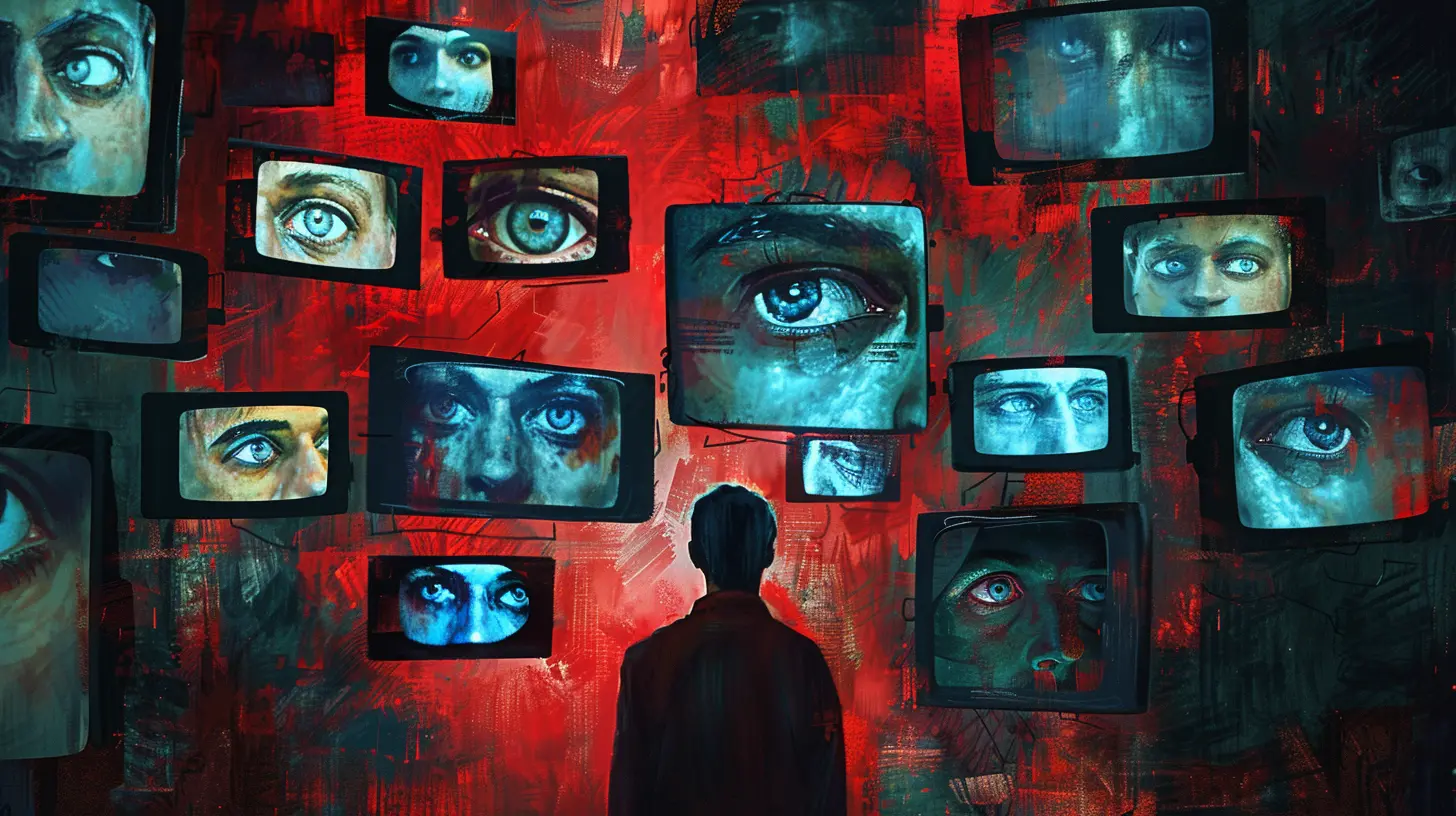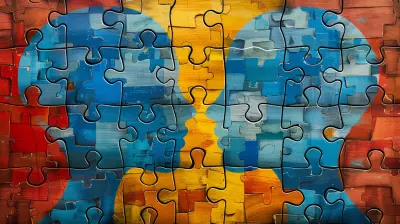The Influence of Social Media on Narcissistic Personality Disorder
15 March 2025
Social media has become a cornerstone of modern life. I mean, let's be real—whether it's Instagram, Facebook, or even TikTok, most of us spend hours scrolling through these platforms daily. But, have you ever wondered what kind of psychological impact this constant connection to social media might be having on us? Specifically, is there any link between our social media habits and personality disorders, like Narcissistic Personality Disorder (NPD)?
In this post, we’re going to dive deep into the fascinating relationship between social media and narcissism. We’ll explore how the constant pursuit of likes, followers, and validation might be influencing our personalities and mental health, especially for those prone to narcissistic traits. So, buckle up—this is going to be a wild ride through the psychology of the digital age!

What Is Narcissistic Personality Disorder (NPD)?
Before we get into the social media aspect, let's first break down what Narcissistic Personality Disorder actually is. NPD is a mental health condition characterized by a long-term pattern of exaggerated self-importance, an overwhelming need for admiration, and a lack of empathy for others. People with NPD often have an inflated sense of their own worth and believe that they deserve special treatment.However, beneath this grandiose facade often lies deep insecurity and fragile self-esteem. It’s like a house of cards—seemingly strong on the outside, but incredibly easy to topple over. According to the Diagnostic and Statistical Manual of Mental Disorders (DSM-5), some of the key symptoms of NPD include:
- A grandiose sense of self-importance
- Preoccupation with fantasies of unlimited success, power, beauty, or ideal love
- Believing they are special and should only associate with other high-status individuals
- A need for excessive admiration
- A sense of entitlement
- Interpersonally exploitative behavior
- Lack of empathy
- Envy of others or belief that others are envious of them
- Arrogant or haughty behaviors or attitudes
Now that you have a pretty good understanding of what NPD is, let’s discuss how social media fits into the picture.

The Rise of Social Media: A Narcissist’s Playground?
Social media provides the perfect platform for individuals with narcissistic traits to flourish. Why? Because it’s all about showcasing yourself, curating your life, and getting validation from others. You post a selfie, and within minutes, you can get likes, comments, and followers. It’s like receiving a mini boost to your self-esteem with every notification.For people with narcissistic tendencies, this kind of instant gratification can be incredibly addictive. Social media becomes their stage, where they can play out their fantasies of being admired, validated, and envied by others. But here’s the catch—social media doesn’t just attract narcissists; in many cases, it can actually create them.
The "Look at Me" Culture
Think about Instagram for a second. The platform primarily revolves around visual content—photos and videos. Users are encouraged to showcase the highlights of their lives: vacations, fancy dinners, new outfits, gym progress, you name it. It’s all about looking your best and projecting an image of success, beauty, or fun.For someone with narcissistic tendencies, this is the perfect playground. The more likes and comments they receive, the more they feel validated in their self-importance. This creates a feedback loop where they're constantly seeking more admiration. It’s like feeding a beast that’s never fully satisfied.
But here’s the twist: even people who don't have NPD can get caught up in this cycle. Social media encourages everyone to seek validation, and over time, this can lead to an increase in narcissistic behaviors, even among people who wouldn’t typically exhibit them.

Social Media and the Development of Narcissistic Traits
So, can social media actually make someone more narcissistic? Short answer: yes, it can.Several studies have shown a correlation between heavy social media use and narcissistic tendencies. For example, a 2014 study published in Personality and Individual Differences found that people who frequently post selfies and status updates tend to score higher on narcissism scales. Additionally, another study revealed that individuals who spend more time on social media are more likely to exhibit traits such as vanity, self-centeredness, and an excessive need for admiration.
This all makes sense when you think about how social media works. Platforms like Instagram, TikTok, and Facebook encourage users to constantly seek validation through likes, comments, and shares. Over time, this can cultivate a mindset where external approval becomes a primary focus, leading users to prioritize their online image over real-life connections or accomplishments.
The Role of "Followers" and "Likes"
Let’s talk about the role of followers and likes for a second. In many ways, your follower count becomes a status symbol—it’s like the modern-day equivalent of popularity in high school. The more followers you have, the more "important" you seem. This can create a toxic environment where users start to measure their self-worth based on these metrics.For those with narcissistic tendencies, this can further exacerbate their need for admiration. The pursuit of followers becomes a never-ending quest, one that often leads to superficial behaviors like following trends, buying followers, or even manipulating others to gain social media clout. It’s a chase for validation that never really ends.

How Social Media Encourages a Lack of Empathy
One of the hallmarks of NPD is a lack of empathy. Interestingly, social media can also play a role in fostering this trait. When you’re constantly focused on yourself—whether it's curating the perfect feed or obsessing over likes—it becomes easy to lose sight of other people’s feelings and experiences.Social media can make interactions feel transactional. You like my post, I’ll like yours. You comment on my photo, I’ll return the favor. It’s all about maintaining the appearance of connection rather than fostering genuine relationships. Over time, this can lead to a diminished capacity for empathy, as users become more concerned with their own image than with the well-being of others.
Cyberbullying and the Dark Side of Narcissism
Another concerning aspect is how social media can amplify the darker sides of narcissism, such as exploitation and lack of empathy. The anonymity and distance provided by social media can embolden people to engage in negative behaviors like cyberbullying, trolling, and harassment. Narcissists may use social media to manipulate others, spread rumors, or even publicly attack those they feel threatened by or envious of.For people with NPD, social media can serve as a tool to maintain their sense of superiority by belittling others. It becomes a weapon in their arsenal to assert dominance and control, often at the expense of others' mental well-being.
Social Media vs. Real-Life Relationships
One of the biggest dangers of social media is how it can distort our perceptions of relationships. For individuals with narcissistic tendencies, online interactions can feel more rewarding than real-life connections. Why? Because online, they can control how they are perceived. They can curate their posts to only show the best aspects of themselves, and they can choose who to interact with based on who offers the most admiration.In real life, relationships are messy, complicated, and require emotional investment. But on social media, relationships can be shallow and transactional. This can encourage individuals with narcissistic tendencies to prioritize online interactions over face-to-face relationships, ultimately leading to isolation and loneliness.
The Illusion of Connection
It’s ironic, isn’t it? In a world that’s more connected than ever, we often feel more disconnected in real life. Social media can give people a false sense of connection, where hundreds or even thousands of followers can make someone feel popular, but not necessarily valued for who they are.Narcissists may thrive in this environment, where they can build superficial relationships that don’t require vulnerability or emotional investment. However, over time, this can lead to feelings of emptiness and dissatisfaction, as these superficial connections fail to provide the deep emotional fulfillment that real-life relationships offer.
Can Social Media Use Lead to Full-Blown NPD?
While social media can certainly exacerbate narcissistic traits, can it actually cause someone to develop full-blown Narcissistic Personality Disorder? This is a bit more complex. NPD is generally believed to be the result of a combination of genetic, environmental, and psychological factors. So, while social media alone is unlikely to "cause" NPD, it can certainly contribute to the development of narcissistic behaviors in individuals who are predisposed to the disorder.For those who already display narcissistic traits, social media can act as a breeding ground for these tendencies, reinforcing their need for admiration and validation. Over time, this can make their narcissistic behaviors more pronounced and potentially lead to the development of a full-blown personality disorder.
How to Use Social Media Responsibly
So, what can we do about this? Does this mean we should all delete our social media accounts and go live in a cave? Not necessarily. Social media isn’t inherently bad—it’s how we use it that matters.Here are a few tips for using social media responsibly, especially if you’re worried about how it might be affecting your mental health:
- Limit your screen time: Set boundaries for how much time you spend on social media. The less time you devote to seeking validation online, the more time you can spend fostering real-life connections.
- Be mindful of your posts: Ask yourself why you’re posting something. Are you seeking validation, or are you sharing something meaningful?
- Focus on real-life relationships: Make an effort to spend time with friends and family in person, where you can build deeper, more meaningful connections.
- Practice empathy: Remember that there are real people behind those usernames. Try to engage in meaningful conversations rather than transactional interactions.
- Unfollow toxic accounts: If certain accounts make you feel jealous, inadequate, or overly focused on superficial things, it’s okay to unfollow them.
Conclusion
Social media has undoubtedly changed the way we interact with the world—and with ourselves. While it offers a platform for connection and self-expression, it can also encourage unhealthy behaviors, particularly for those with narcissistic tendencies. The constant pursuit of likes, followers, and validation can create a toxic feedback loop that exacerbates narcissistic traits and diminishes empathy.That being said, social media is a tool, and like any tool, it can be used for good or bad. By being mindful of how we use these platforms, we can mitigate their negative effects and focus on building genuine, meaningful relationships both online and offline.
all images in this post were generated using AI tools
Category:
Personality DisordersAuthor:

Alexandra Butler
Discussion
rate this article
8 comments
Rachael Simon
This article effectively highlights the correlation between social media use and Narcissistic Personality Disorder, yet it overlooks the complexities of individual psychology and societal factors that contribute to narcissism.
April 7, 2025 at 2:50 PM

Alexandra Butler
Thank you for your insightful comment! I acknowledge the importance of individual psychology and societal factors in understanding narcissism and appreciate your perspective. This article aims to initiate a conversation, and I hope to explore these complexities in future discussions.
Chantal McNab
This article effectively highlights how social media amplifies narcissistic traits, showcasing the need for awareness and understanding of its psychological impacts on individuals.
April 4, 2025 at 2:50 PM

Alexandra Butler
Thank you for your thoughtful comment! I'm glad the article resonated with you and shed light on this important issue.
Dior McLaurin
Insightful read! Social media's impact is profound.
April 1, 2025 at 3:31 PM

Alexandra Butler
Thank you! I'm glad you found it insightful. Social media's role in shaping behaviors is indeed significant.
Phaedra Russell
Social media: where selfies fuel narcissism and likes are the new love language! Let's scroll wisely, friends! 📱❤️
March 31, 2025 at 3:38 AM

Alexandra Butler
Thank you for highlighting the playful yet poignant relationship between social media and self-perception. It's crucial to navigate these platforms mindfully to foster genuine connections rather than superficial validation.
William Barron
This article provides valuable insights into the connection between social media and Narcissistic Personality Disorder (NPD). It's intriguing how online platforms can amplify narcissistic traits, influencing self-esteem and interpersonal relationships. Understanding this dynamic is crucial for fostering healthier online interactions and promoting mental well-being in today’s digital age.
March 30, 2025 at 4:37 AM

Alexandra Butler
Thank you for your thoughtful comment! I'm glad you found the insights valuable. Understanding this connection is indeed vital for fostering healthier online interactions.
Fleur McClary
Fascinating exploration! I'm intrigued by how social media amplifies narcissistic traits. What interventions might help balance this influence?
March 25, 2025 at 4:10 AM

Alexandra Butler
Thank you for your thoughtful comment! Interventions could include promoting digital literacy, encouraging self-reflection, and fostering offline social connections to counterbalance the effects of social media on narcissistic traits.
Cadence Foster
Thank you for shedding light on the complex relationship between social media and narcissism. Your insights offer valuable perspectives on mental health in the digital age.
March 20, 2025 at 5:51 AM

Alexandra Butler
Thank you for your kind words! I'm glad you found the insights valuable.
Theodora Ward
This article insightfully highlights how social media can amplify narcissistic traits, prompting us to reflect on our own online behaviors.
March 19, 2025 at 5:10 AM

Alexandra Butler
Thank you for your thoughtful comment! I'm glad you found the article insightful and that it sparked reflection on our online behaviors.
MORE POSTS

How Attachment Theory Informs Clinical Psychology

Understanding the Spectrum: From Personality Traits to Personality Disorders

Psychoanalysis and the Concept of Death: Exploring Thanatos

Why Arguments Can Be Healthy for Your Relationship

The Influence of Personality Traits on Career Success

The Science Behind Early Childhood Literacy